AITA for ‘forcing’ my son to wait to marry his then high-school girlfriend?

When you’re a parent, deciding how to support a child’s life choices can feel like walking a tightrope—especially when marriage enters the picture at a young age. In this situation, a mother offered to pay her 18-year-old son’s college tuition on the condition that he postpone marrying his high-school girlfriend. Fast-forward four years, and the son has maintained a long-distance relationship, is now engaged, and has revealed that his mother’s offer was the main reason for the delay.
The fiancée didn’t take the news well, accusing the mother of “paying off” her son so he wouldn’t marry her sooner.But was this “deal” truly meddling or a well-intentioned attempt to ensure her son pursued higher education without rushing into a major commitment? As we examine the nuances—from the fiancée’s emotional reaction to the family dinner confrontation—the question remains: did this mother cross a line or provide much-needed guidance?

‘ AITA for ‘forcing’ my son to wait to marry his then high-school girlfriend?’
Below is the original account that sparked significant debate:

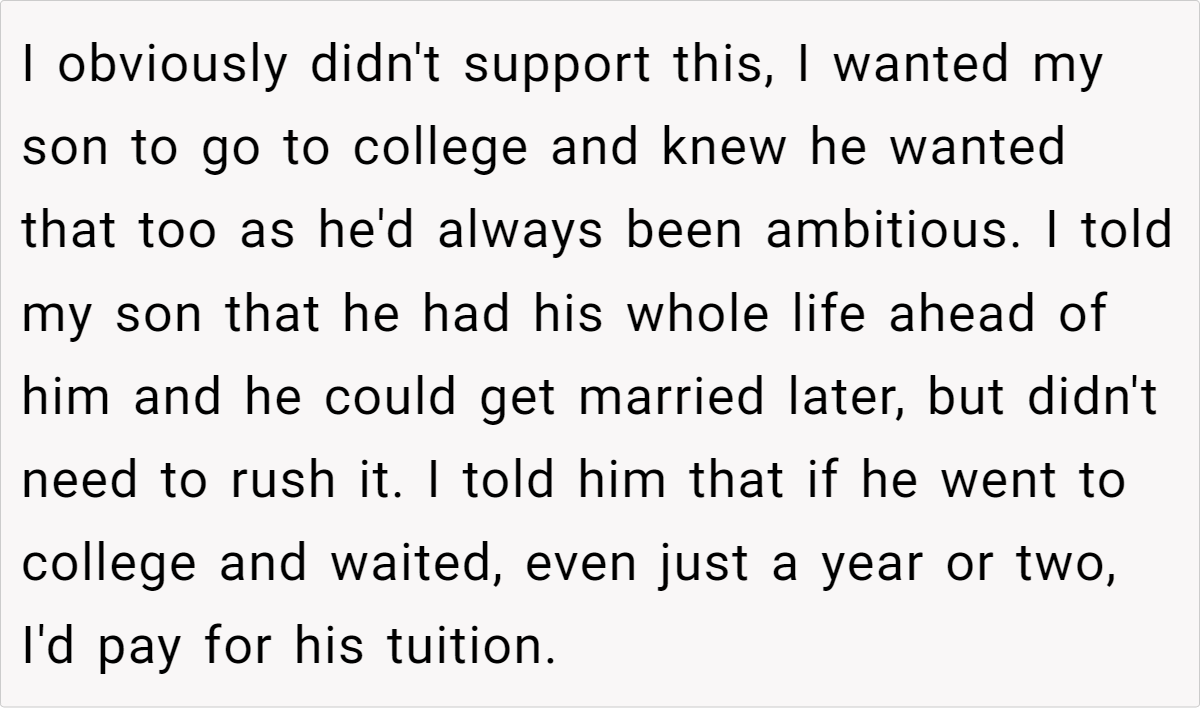

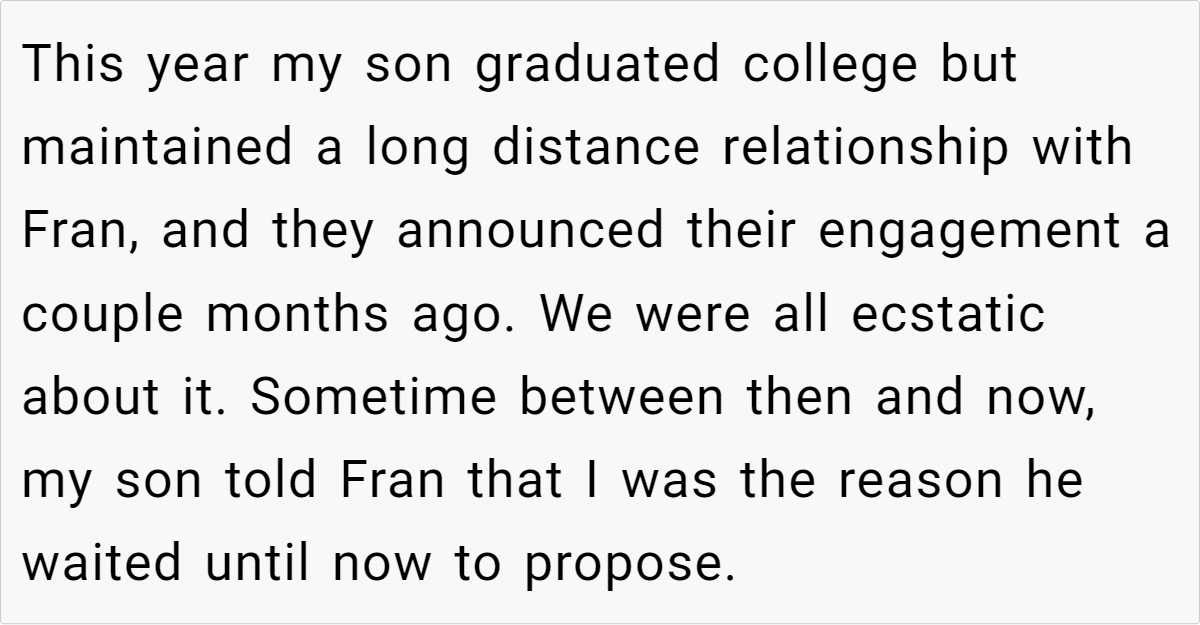
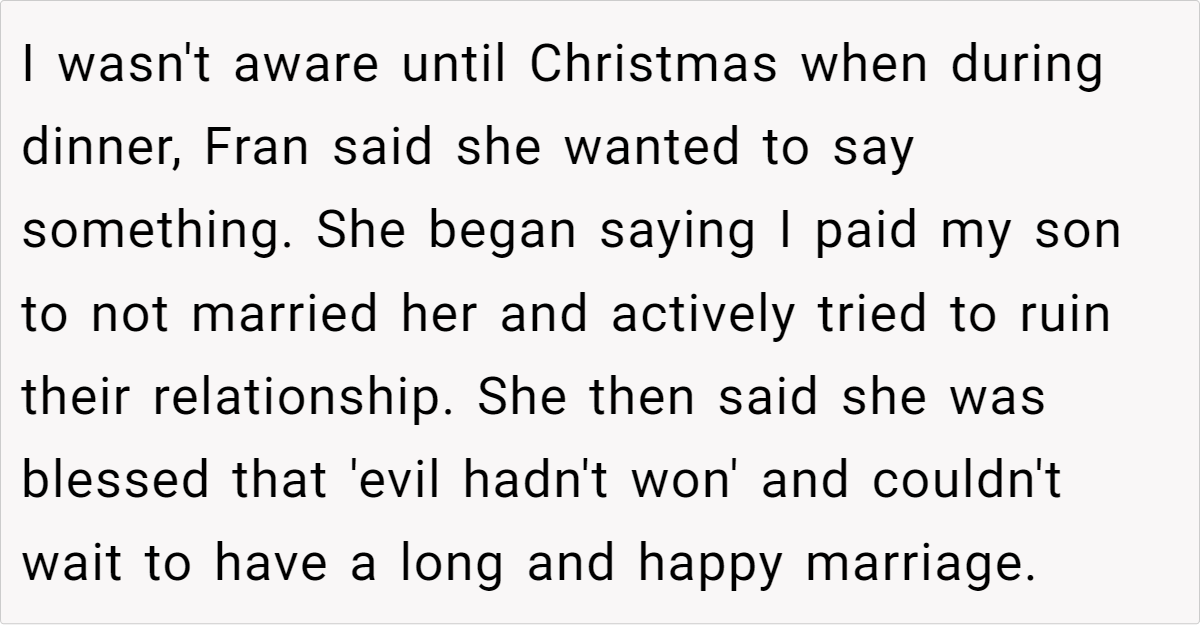
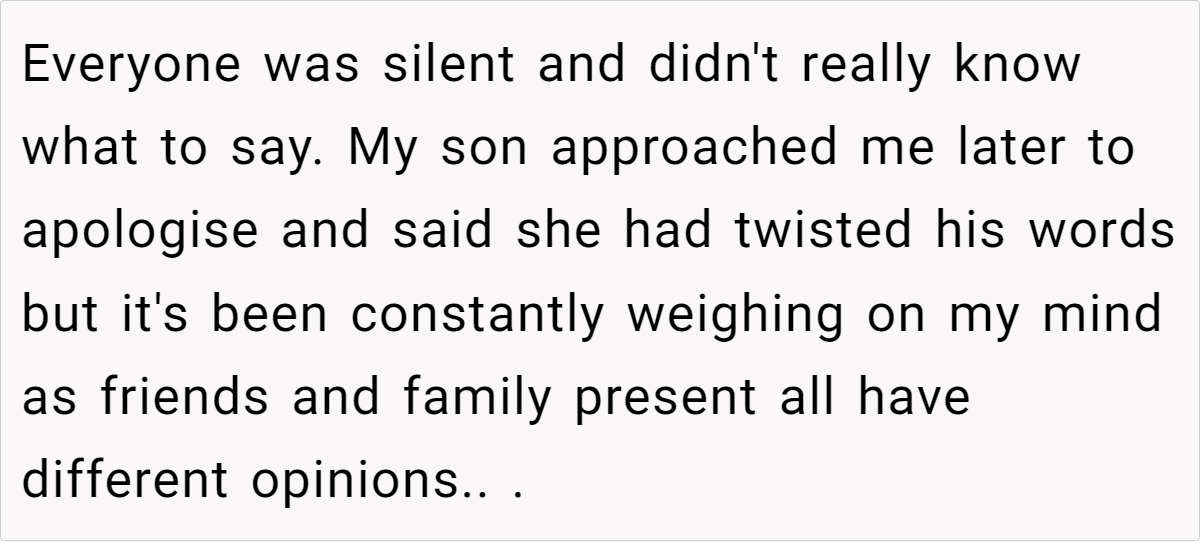

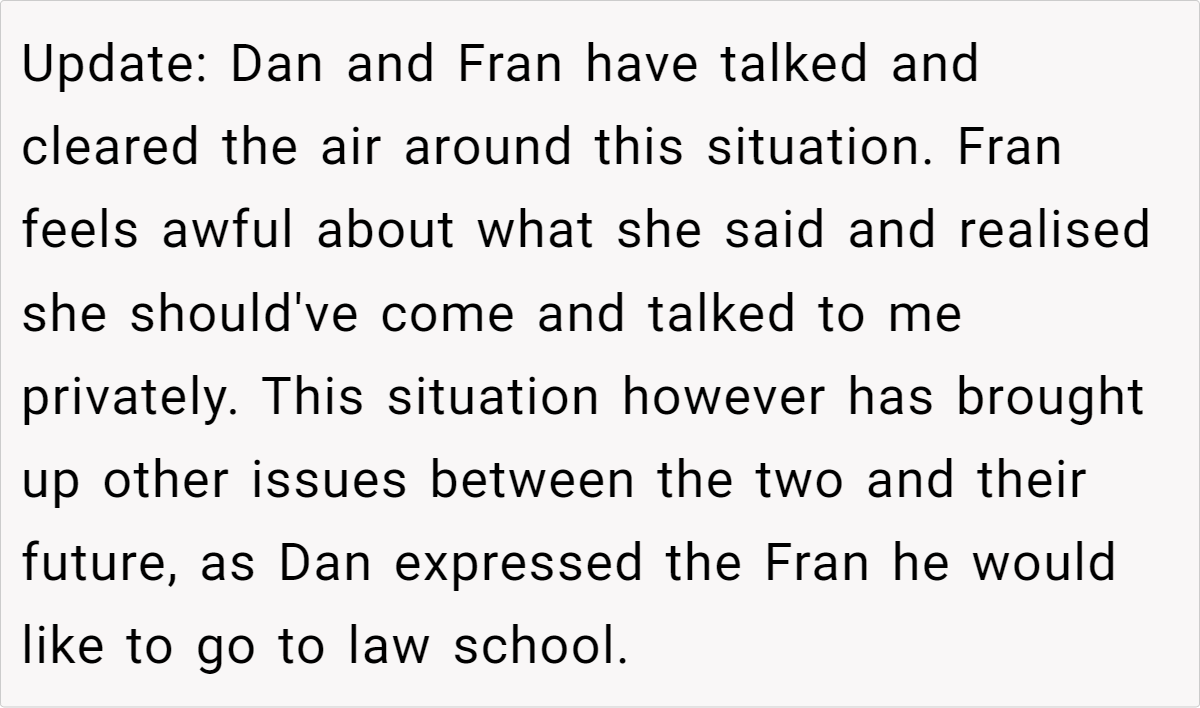
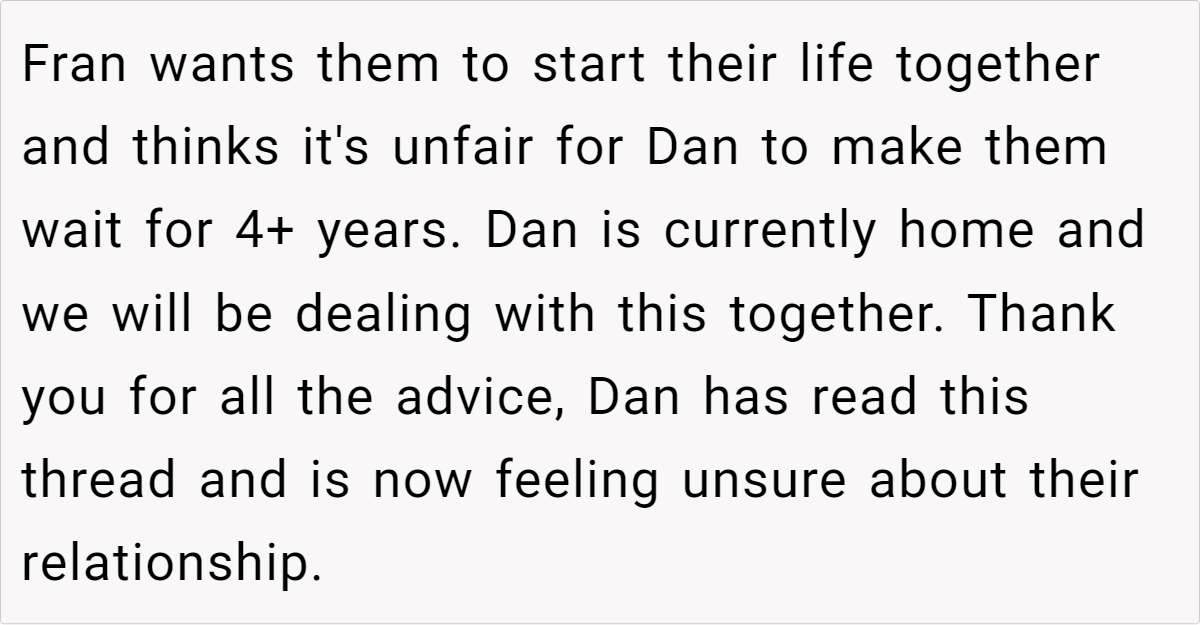
Balancing Young Love and Practical Guidance
Encouraging a child to slow down before making a lifetime commitment can stem from genuine concern, particularly when college is at stake. Dr. Ann Gold Buscho, a psychologist specializing in family transitions, notes that parental guidance is often misunderstood when emotions run high. “Parents may see youthful decisions as impulsive and try to provide incentives for more mature planning,” she explains. By offering to pay tuition, the mother ensured her son didn’t regret sacrificing educational opportunities for a marriage he might not have been ready for at 18.
The Fiancée’s Perspective
It’s understandable the fiancée feels hurt if she interprets the mother’s actions as undermining her relationship. However, her dramatic response at a family gathering—calling the mother’s actions “evil”—suggests more than just hurt feelings; it points to a deeper tension. Psychologist Dr. Buscho emphasizes that “major milestones like getting engaged can resurface long-buried resentments, especially if one partner felt dismissed or disregarded early in the relationship.” The fiancée may have harbored feelings for years, now erupting in a public setting.
Communication Gaps
An 18-year-old might not always articulate parental deals to a partner in a nuanced way. If he simply told Fran, “My mom paid me to not marry you,” that can sound manipulative, even if he understood it differently. The mother’s intent was for her son to pursue education without shutting the door on love. Unfortunately, the fiancée’s retelling comes off as a condemnation rather than a clarification. Family therapist Terry Gaspard suggests that “open discussions—sooner rather than later—can defuse misunderstandings.” Having that conversation behind closed doors, instead of at Christmas dinner, could have salvaged some goodwill.
Looking Ahead
Now that the cat is out of the bag, the son and fiancée must reconcile what truly happened. If the fiancée interprets the mother’s well-meaning gesture as sabotage, bridging trust could be challenging. Future in-law dynamics might remain strained unless everyone sits down and addresses lingering resentments. Dr. Buscho advises, “Rather than dwelling on ‘who caused what,’ family members can focus on shared goals, like a healthy, supportive environment for the couple.” Indeed, if the son still feels he made the right decision—finishing college first—this clarifies the mother’s support was beneficial, not a bribe.
Here’s the input from the Reddit crowd:
Many Redditors side with the mother, praising her for offering guidance and pointing out that the fiancée’s public condemnation was inappropriate. Others worry the fiancée’s words foreshadow a tense in-law relationship, believing this conflict highlights mismatched maturity levels. Some suggest the son should clarify to his fiancée that postponing marriage was ultimately his own choice.

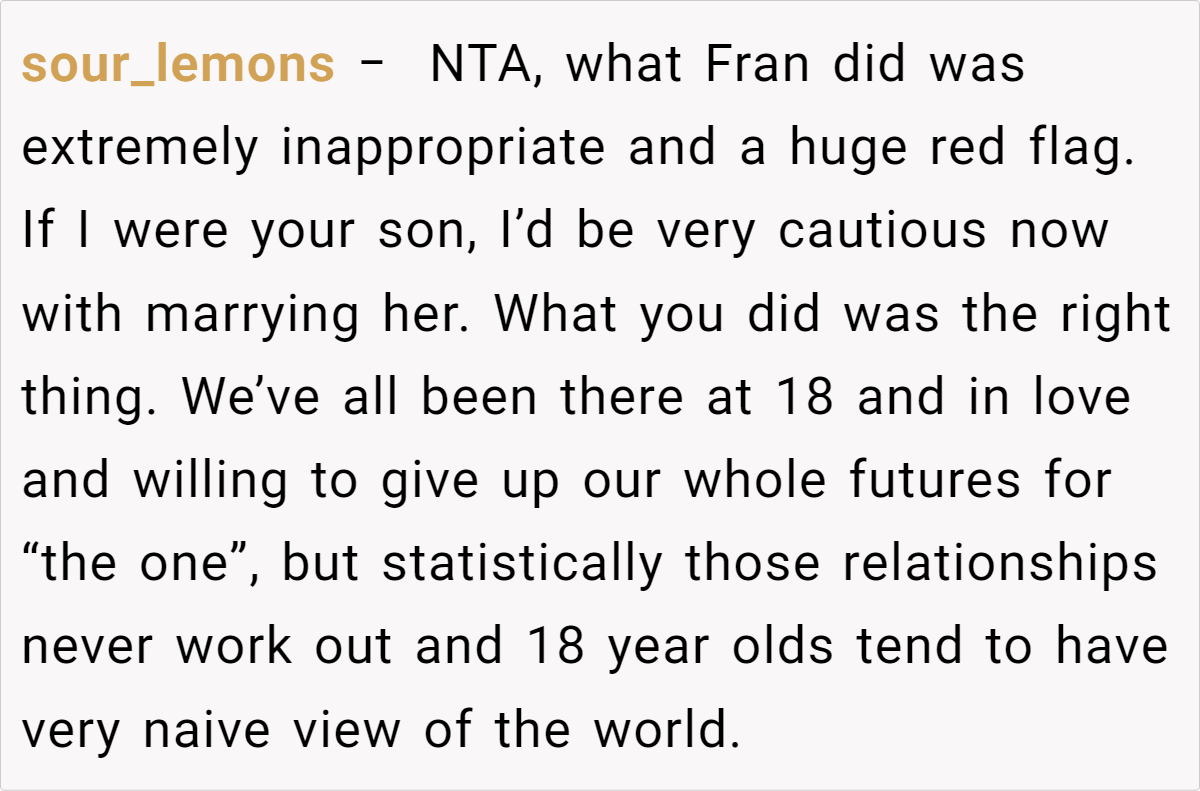
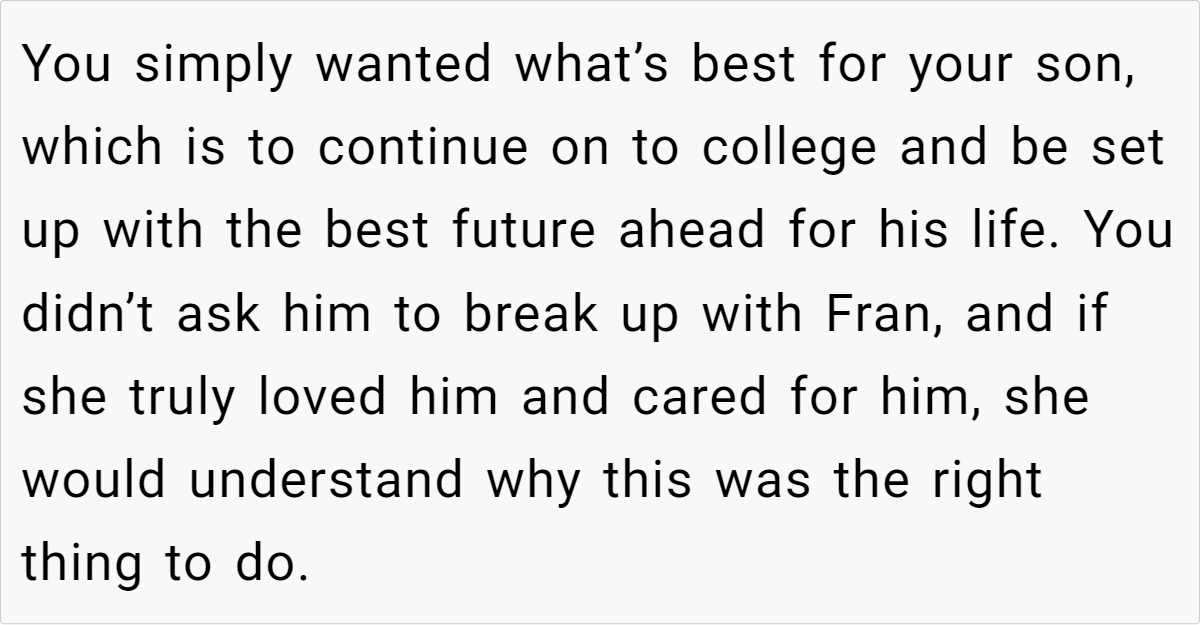
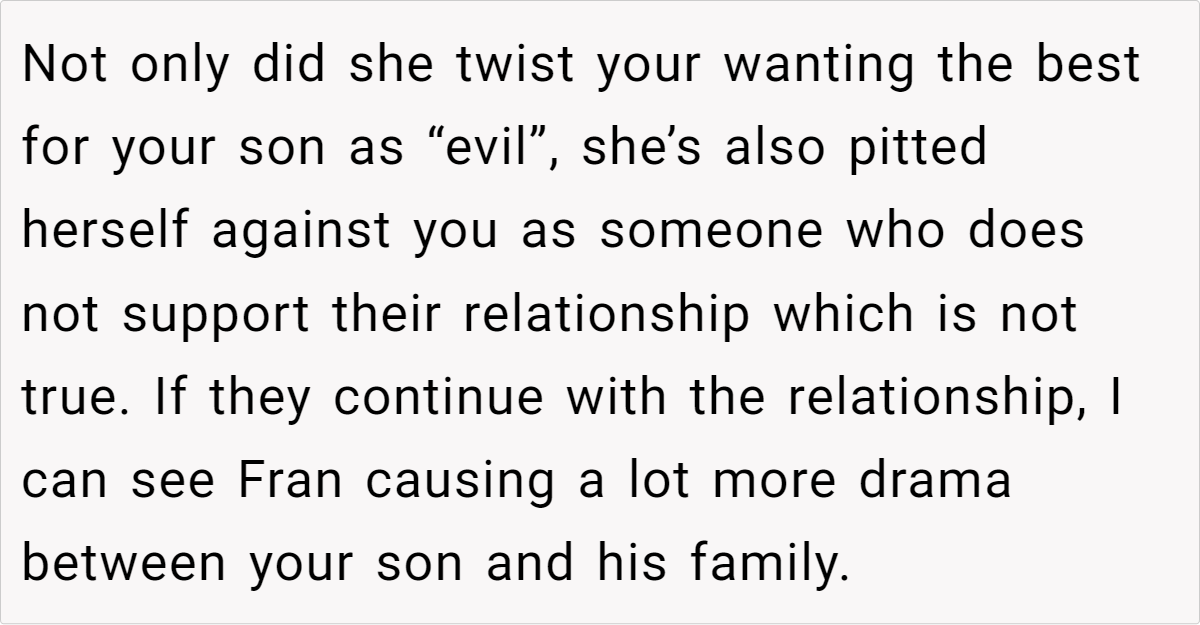
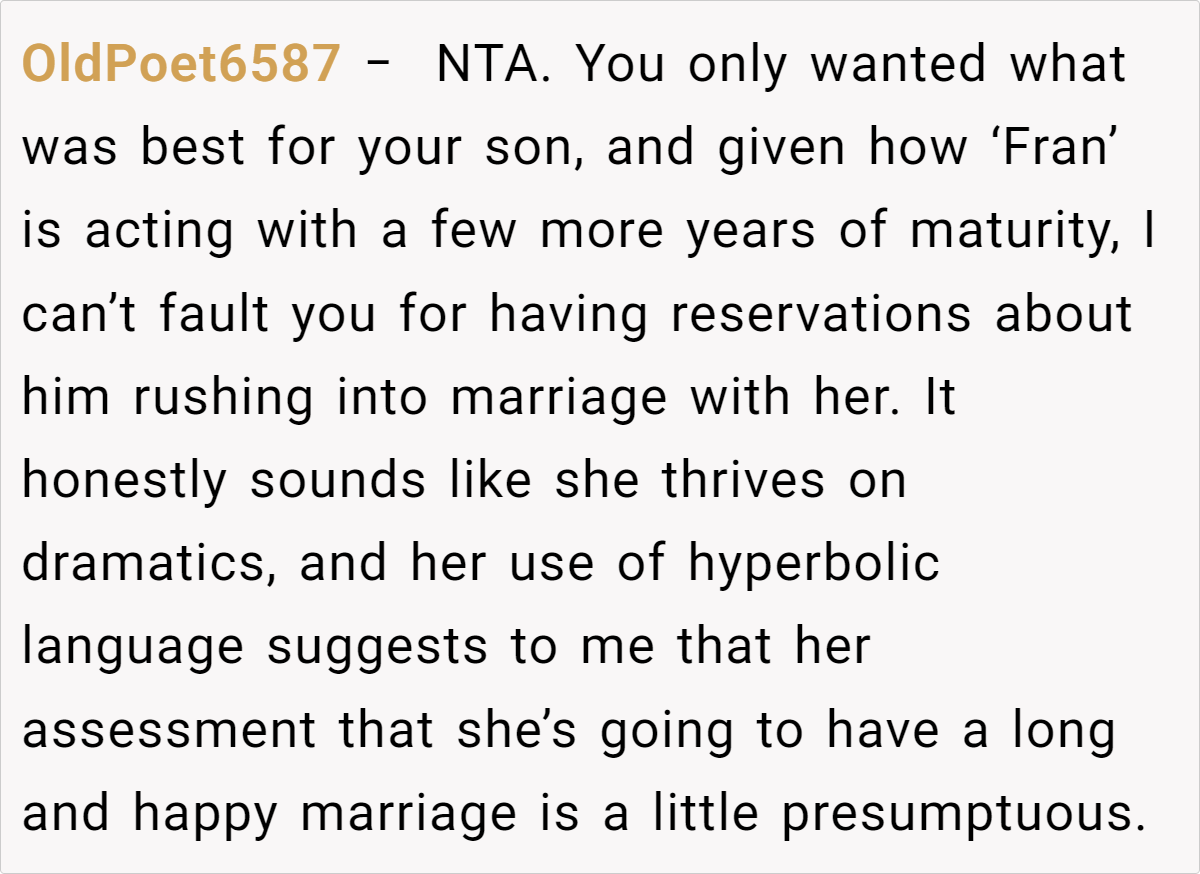

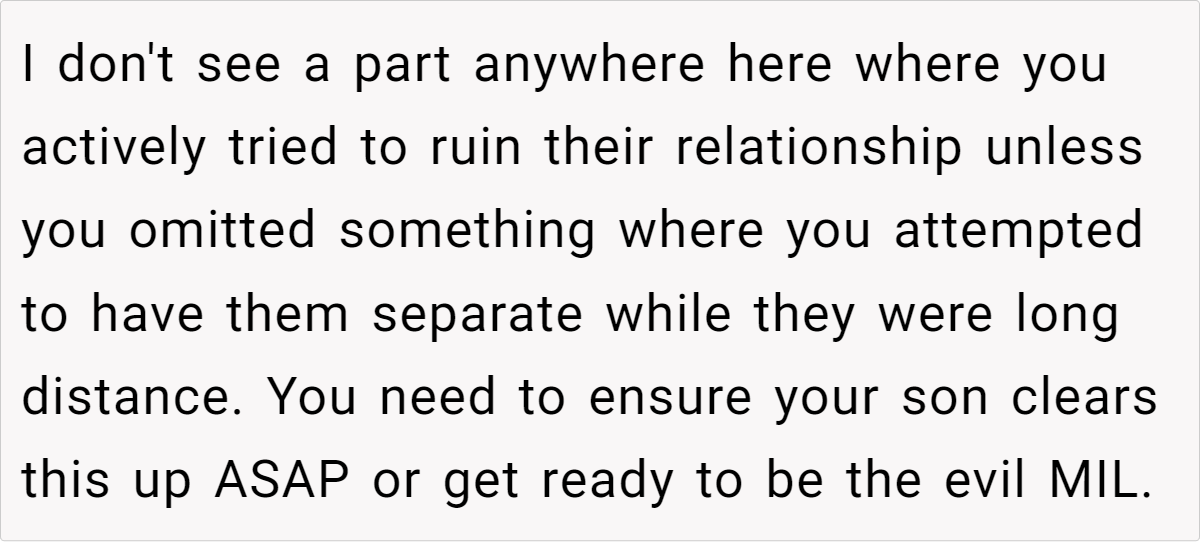







Striking a balance between respecting young love and safeguarding a teen’s future is no easy feat. Was the mother “buying time” or providing a responsible alternative for a son who might have otherwise made a life-altering choice too soon? Share your thoughts on navigating parental influence, financial incentives, and teenage relationships below.


You are the typical controlling mother who can’t bear that their son loves somebody else. They would still have made it even if they got married when they wanted to. You look down her nose because she works in her parents bakery. Snob! Hope you are happy now that you have successfully screwed up their lives. I would not apologize to you. In
fact I don’t know if I would even talk to you again. You should be apologizing to them and
your son needs to grow up and let mommy go. If he has to talk to you about this she needs to let him go find someone else and let mom pay all the bills. Interfering old bat!
What Fran did was wildly inappropriate and shows what a life with her will look like. She clearly just doesn’t want to work; seems to prefer instant gratification rather than putting in the work he wants to do to get a law degree. Supporting him for a few years wouldn’t kill her.